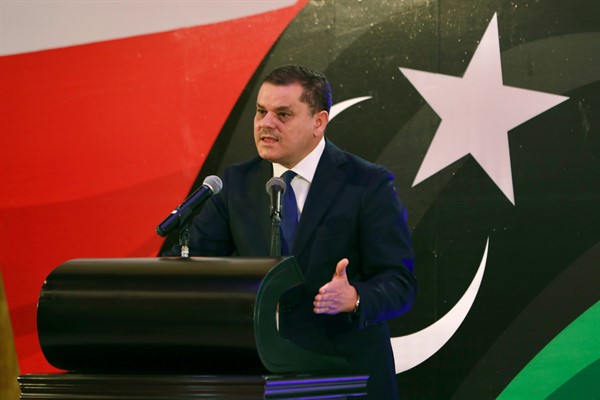This time last year, the Libyan capital was caught up in a year-old military campaign that had further internationalized the country’s dangerous divisions. Today, there is a new mood of cautious optimism in Tripoli. In October, negotiators from the two main warring sides—the United Nations-backed Government of National Accord and forces led by Khalifa Haftar, a commander based in eastern Libya—reached a cease-fire agreement that allowed for the resumption of a U.N.-led dialogue process. This in turn paved the way to the formation of Libya’s first unified government since the country slid into civil war in 2014.
The new Government of National Unity, or GNU, offers hope that oil-rich Libya can move on from seven years of bloody power struggles. It took office in mid-March, and has already made history with the inclusion of the country’s first female foreign minister and justice minister. However, the underlying military-political and economic tensions that fueled the civil war persist and could yet derail what remains a fragile reunification process.
Led by Prime Minister Abdul Hamid Dbeibah, an influential businessman from Misrata, Libya’s third-largest city, the GNU’s mandate is short, but its challenges are many. Its primary task is to steer the country toward national elections that are scheduled to take place on Dec. 24, the anniversary of Libya’s independence, as well as tackling a longstanding electricity crisis and the spread of COVID-19. The GNU got off to a shaky start: Dbeibah’s tenure has already been dogged by allegations of vote-buying at the Libyan Political Dialogue Forum, where delegates selected the new government.

